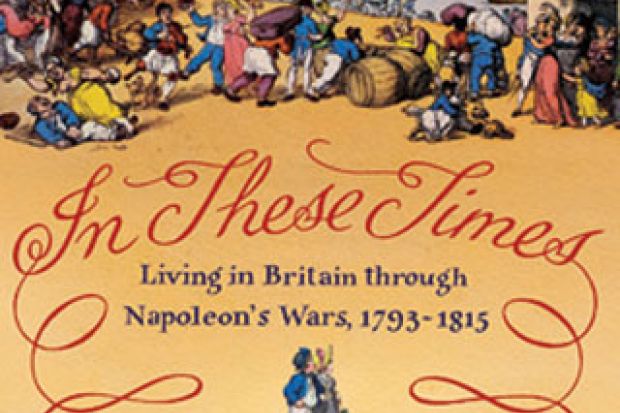Emma Butcher, doctoral candidate in English literature, University of Hull, is reading Jenny Uglow’s In These Times: Living in Britain through Napoleon’s Wars, 1793-1815 (Faber, 2014). “This leads the historian’s eye away from the Napoleonic battlefield and instead focuses it on the everyday British people left behind. My ancestors were Suffolk farmers, so I was delighted to learn how they might have lived. Uglow’s relatable characters capture the imagination; she has an amazing ability to write history and make it read like fiction. I had to pinch myself and say, these were real people!”

Jon May, professor of psychology and associate head of school, Plymouth University, is reading Frederick Toates’ How Sexual Desire Works: The Enigmatic Urge (Cambridge University Press, 2014). “This sounds like a useful self-help manual but is actually an all-round examination of a core aspect of human experience from one of psychology’s leading experts in motivation. Theory and data are entertainingly balanced by examples from life and the arts, so that it works as a textbook or as an example of popular science that is especially well evidenced.”

Roger Southall, professor emeritus of sociology, University of the Witwatersrand, is reading Lawrence Hamilton’s Are South Africans Free? (Bloomsbury, 2014). “At a very challenging time for our democracy, Hamilton argues that South Africans are freer than they were under apartheid, yet they require ‘freedom as power’ to drive far-reaching institutional and economic change to avoid the terror and destruction of a ‘real’ revolution. Exciting. Alarming. Controversial. Important.”

Uwe Schütte, reader in German, Aston University, is reading Patrick Roth’s Starlite Terrace (Seagull, 2013). “Every now and then one reads a book and feels overwhelmed by it. This is that kind of book. It involves four stories narrating miraculous events that at first sight seem unrelated yet turn out to be subtly interconnected. Four people’s everyday lives suddenly shift from the mundane to the transcendent – just like this magnificent book, which rekindles one’s faith in the redemptive power of writing.”

Auriol Stevens, former editor of Times Higher Education, has been reading Katharine Mair’s Abused by Therapy: How Searching for Childhood Trauma Can Damage Adult Lives (Matador, 2013). “An alarming account of a psychotherapy industry that has grown and flourished on the ‘recovery’ of unverified memories and speculative diagnoses of the origins of personality disorders. The whole business has become very topical now that the victims want to set the rules for the inquiry into historic sex abuse cases. It is depressing that Mair had to publish this book privately.”

